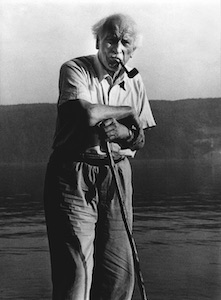Jungian Keynotes
In-depth explorations of key aspects of Analytical Psychology
Jungian Keynotes is a series of eight lectures at the start of each new semester for both ISAP students and the public. This series is not an introduction to Analytical Psychology per se but offers a short introduction followed by an in-depth exploration of a key aspect of Jungian psychology. The lectures will highlight a different aspect each semester. ISAP’s teaching program is not, and cannot be, structured as a linear progression of levels or a tidy division into topics. Analytical Psychology is intrinsically holistic, so learning is by a process akin to osmosis.
Jungian Keynotes – February 2024
Symbols

Looking at phenomena – indeed at life – from a symbolic perspective is a key element of Jung’s Psychology. This lecture series highlights the major role symbols play in the individuation process. It emphasizes their reality and their transformational potential in the analytic praxis, showing how symbols can be experienced by individuals as a revelation connecting them to the very source, and as a practical translation key. It is pointed out how symbolic images can transform emotions into thought and how they can initiate a fundamental change in an individual’s life. Works of art are shown that testify to artists’ attempts to catch the elusive symbolic images rising from the unconscious. Further topics are Jung’s seminal discovery of the collective unconscious via a new symbolic approach to psychiatry, as well as a symbolic interpretation of the Black Madonna, an old and wide-spread numinous image speaking to people’s souls across cultures. It is highlighted how a symbolic approach in ethnology serves to explore the archetypal basis of images, rituals and customs around the world.
All Jungian Keynotes lectures will be on-site and broadcast live on Zoom. You can purchase Zoom attendance below on this page. See our Zoom Lectures page for more details.
Date & Venue
27 February – 1 March, 2024

Stampfenbachstr. 115, 8006 Zürich
Tram 11 or 14 to Beckenhof
Event Schedule
Tuesday, 27 February
13:00–14:45
Murray Stein, PhD
01 02 Lecture | Symbol and Individuation
The role of symbols in the individuation process.
15:00–16:45
Judith Harris, MA
01 03 Lecture | Jung and Psychiatry: The Discovery of the Collective Unconscious
It is no coincidence that Jung chose psychiatry as his specialty upon completion of his medical studies; at this time he began his research on symbol formation and the collective unconscious. More than twenty-five years later, in his seminar, ’Introduction to Jungian Psychology: Notes of the Seminar on Analytical Psychology Given in 1925,’ Jung describes his decision thus, “I told nobody that I intended to work out the unconscious phenomena of the psychoses, but that was my determination. I wanted to catch the intruders of the mind.”
Wednesday, 28 February
13:00–14:45
Penelope Yungblut, MA
11 05 Lecture | Mysteries of the Black Madonna
We shall be exploring the enduring fascination and numinous power of this primordial image over time and across cultures.
15:00–16:45
Brigitte Egger, Dr. sc. nat. ETH
01 06 Lecture | Symbol: Key Tool and Vivifying Experience
Understood as an image that represents much more than its mere concrete form, the symbol opens a window onto the very roots of the world. It can be experienced as a revelation, but also used as a translation key. If becoming possessed by a symbol imprisons us, then entering into dialogue with it liberates energy. Thus, the symbolic equation is to depth psychology what the mathematical equation is to the natural sciences. It allows powerful analysis and forges deeply attuned solutions. To adopt a symbolic attitude is a truly vivifying experience.
Thursday, 29 February
13:00–14:45
Nancy Krieger, PhD
08 08 Lecture | Symbol: The Space between Emotion and Idea
We will look at the role symbols play in transforming emotions into thought — both physically and culturally — and how the use of symbols in a Jungian approach parallels this process, giving us access to new perspectives on our life path.
15:00–16:45
Lucienne Marguerat, lic. phil.
04 09 Lecture | Why We Love Symbols — Always Elusive and Beyond Our Reach
Jung defines the symbol as ‘’the essence and image of psychic energy”. We will explore what might sound abstract and examine what the elusiveness of symbolic images calls upon in us. We will look into the reasons why symbols can represent a powerful impulse toward a meaningful change in our lives — provided we are open to them. Examples of artistic creations will illustrate how artists make use of the evocative power of symbols.
Friday, 1 March
13:00–14:45
Paul Brutsche, Dr. phil.
01 11 Lecture | Symbols and Transformation: The Meaning of Symbols within the Analytical Process
In this course we will explore four fundamental and essential areas of Jungian theory with regard to symbols:
• Symbolic Consciousness
• Symbolic Reality
• The Reality of Symbols
• Transformation through Symbols
15:00–16:45
Ursula Ulmer, MA
05 12 Lecture | Symbolism within Ethnology
We will be exploring the symbolic dimension of ethnic customs, rituals and behavior.
Cost & Registration
Payment in cash at the door
The Complete Lecture Series
General Entry: CHF 180
Students & Over 65: CHF 120
Per Lecture
General Entry: CHF 30
Students & Over 65: CHF 20
Refugees attending on-site: CHF 10 (proof of official refugee status must be shown on-site for discount)
Gratis for ISAP Students and Analysts
For questions please contact [email protected]

